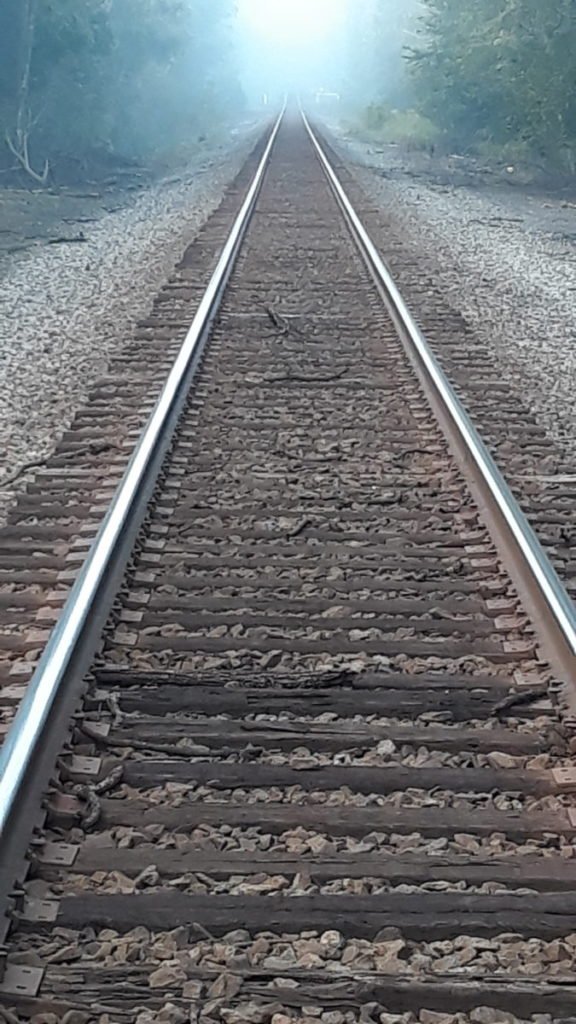Mountains Fall Away
When there is nothing left to say
I will stare out to limestone cliffs
risen from salt, the hawk’s sway
born of an old sea’s shimmy and drift
of continents. I’ll know my grandmother’s gaze
like a captain’s wife sighting nests
of eagles from her porch, her gray
eye, my brown one, skirting a crest
of pine, its wilderness where psalms
swim the waters. When words cease,
dry banks will spread open their palms,
our silence found in the creases
of creekbed valley and cleft—
Listening, finally, will be what is left.
I recently watched, for a second time, the indie documentary by Ashley York called Hillbilly. In one scene several Affrilachian writers talk about Appalachian stereotypes they’ve encountered in the world at large, and how relieved they are to return home where they can just be black without being hillbillies. One of the participants is Frank X Walker who coined the term Affrilachian.
Frank’s poetry collection Last Will, Last Testament is on my shelf. He explains that he replaced his middle name with X to make space for the unknown elements in his life. In many ways, that X is also Appalachia: It is my grandfathers’ signatures placed as X because they could not read or write. It is the mark of incomprehension, the most misunderstood region of America, the most stereotyped and exploited. It is the mark of absence, of not knowing how to write about Appalachia.
Appalachian based magazines tend to warn against stereotypes with a fervor that nearly forbids custom and heritage. One journal admonishes submitters not to write about “mamaw” and “papaw”—seemingly unaware they just implied that local dialect and family are marks of inferiority. And yet poets such as Maurice Manning have successfully written in local tongue and tradition.

As always, the path to credible writing is through reading. On that note, I’ll recommend a few Appalachian reads from my own bookshelf:
The Evening Hour by Carter Sickles—A novel of how people live with the coal industry’s legacies of environmental ruin and drug addiction. Beautifully written and also made into an excellent movie. I’d recommend seeing the movie first for its one iconic character (who is not the protagonist but you will know, half way through, who it is).
Silas House—Kentucky based author whose latest novel is Lark Ascending, though he’s written several others. He tends to write sensitively about what it is to love a region that loves you back imperfectly and partially and sometimes, just enough.
Ramp Hollow by Steven Stoll—I saw this author at the Virginia Book Festival a few years back. A New York history professor whose book is a monumental historical account of land-grabbing and dispossession in Appalachia.
Thirteen Moons by Charles Frazier. North Carolina author writes the novel that could be the fictional companion to Stoll’s book above. Legacies of dispossession that include the Cherokee nation. Still a fun romp of a novel.
Poems New and Selected by Ron Rash—Part narrative, part lyrical. Rash writes of working mills, towns under water, ghosts, and history and family. These are the most compelling poems ever written about his region of North Carolina.
One Man’s Dark by Maurice Manning—Half dream and half holler, these poems spin prophetic visions out of trees and streams and local characters. Brilliant, I’ve worn the pages thin on my copy.
What You are Getting Wrong About Appalachia by Elizabeth Catte—Staunton author writes a blistering antithesis to J. D. Vance and explains what people don’t and should know about “Trump Country.”
Some Notes You Hold by Rita Quillen—Virginia based author of several novels and poetry collections. This poetry collection creates a “music of living” from human mysteries of birth and death, work and family.
Last Will, Last Testament by Frank X Walker—Kentucky based poet whose work yields both an accounting and a grace from our families, and whose vision takes us back down the taproot to the place where we began yet scarcely know.
A Place So Deep Inside America it Can’t Be Seen by Kari Gunter-Seymour- Ohio based Appalachian poet whose quiet stories take us deeper into mysteries of complicated family relationships and the truths of a region.
This list should be considered a small sampling, there are many, many more. Happy reading!

Share this post with your friends.


Thanks Sharon, for this thoughtful introduction to the current/recent literature of Appalachia.